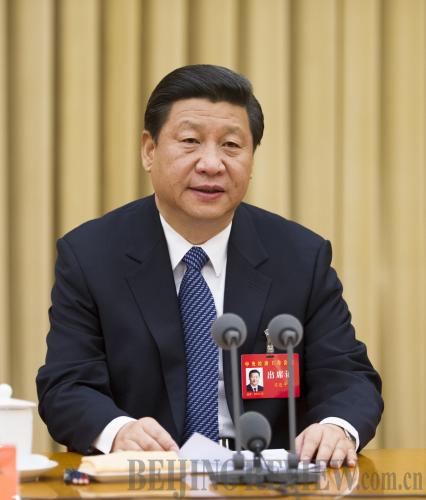|
 |
|
MAPPING OUT ECONOMIC POLICY: Xi Jinping addresses the Central Economic Work Conference held in Beijing on December 15-16 (LI XUEREN) |
Wang Yukai, a professor at the Chinese Academy of Governance, thought Xi's tour in south China could also signal a new wave of reform as significant as that of Deng's in 1992.
"Xi's tour illustrates to the world that the country's new leaders will follow down a path of reform and opening up initially put forward by Deng," Wang said. Without Deng's reforms, he added, China would not be where it is today.
Chen Yao, a researcher with the Institute of Industrial Economics at the Chinese Academy of Social Sciences (CASS), said previous reforms were analogous to "crossing the river by touching the stones." This time around, Chen said, the CPC Central Committee is stressing foresighted reform planning.
A roadmap and timetable for a new round of reforms are expected to be released in March next year during the session of the National People's Congress.
The CEWC stressed the need to "actively and steadily" press ahead.
Zhang said that the Chinese economy is experiencing two significant changes: a move from high-speed growth to stable growth; and from an expansion of scale to development based on quality and efficiency, adding that the government is taking an "active and steady" approach to ensure the changes continue.
"Steady" refers to stabilizing economic growth and price levels, while "active" refers to pushing forward economic restructuring and the pursuit of high-quality economic growth, said Zhang.
Since the fourth quarter of 2010, economic growth was in steady decline for seven consecutive quarters. Although growth appears to be rebounding, Zhang said the foundation for stronger growth remains weak.
The biggest problem in the Chinese economy is not the speed of growth but its quality and efficiency. If the problem of quality and efficiency cannot be fundamentally solved, the Chinese economy will be in a state of instability, says Yao Jingyuan, a researcher with the Counselors' Office of the State Council, in an interview with Xinhua News Agency.
To ensure stable economic growth, the CEWC decided to maintain a proactive fiscal policy and prudent monetary policy in 2013 to make counter-cyclical regulations and advance economic restructuring.
The policies will carry on from 2012 but with new conditions. Tax reform and structural tax reductions will be included in the country's fiscal policy. Regarding monetary policy, the government will now focus on controlling the rate at which it prints money.
Liu Shangxi, Deputy Director of the Fiscal Science Research Center at the Ministry of Finance, said that although uncertainties in the global economy could hinder China's growth, any impact wouldn't be so great as in 2008-09. Therefore, in terms of fiscal policy, there is no need for China to formulate such expansionary measures.
| 